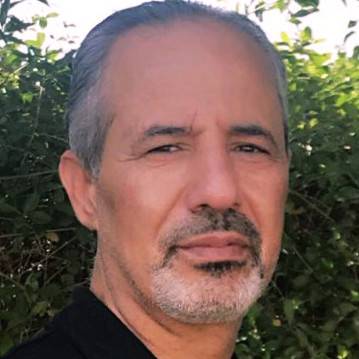Writing about Syria is emotionally draining and intellectually overwhelming.
Evident by the level of destruction and killing, the mutual hatred between President Bashar Al Assad’s regime and the armed opposition surpasses their love of country.
More than 70,000 have been killed and, not counting internally displaced Syrians, there are more than one million refugees in neighbouring countries.
The Syrian people who selflessly opened their homes and shared their schools with the children of refugees from Palestine, Jordan, Lebanon and Iraq are themselves living in horrible conditions in camps.
Greater Syria, first broken up by British and French colonisers under the secret Sykes-Picot Agreement, is being fragmented further by internecine strife agitated by competing foreign powers.
Russia and Iran are supporting a doomed dictatorship, while the West pours just enough fuel for the opposition to sustain an unwinnable war.
The Syrians are trapped between an arrogant tyrant and an opposition led by thirsty, prospective dictators united in their hate and lacking a futuristic vision for Syria.
Not to mention the Arab Summit’s vain resolutions, four important local and regional events took place in the past week that offer an insight into what’s in store for Syria and the Middle East at large.
The murder last Thursday of a high ranking Sunni Muslim cleric Shaikh Muhammad Bouti in a Damascus mosque, along with 49 peaceful worshippers, violated a central Muslim tenet on the sanctuary of holy places – irrespective of Mr Bouti’s political position.
Although it could be argued that the regime’s atrocities emboldened Al Qaeda-inspired fighters, the opposition can’t continue to present itself as an alternative to dictatorship when it is associated with organisations professing a divine mandate to kill people they disagree with.
Second was the sudden resignation of Moaz Khatib, head of the anti-government Syrian National Coalition, along with 12 other members of the coalition’s leadership.
Khatib was forced to back down several weeks after he posited direct negotiation with the government to put an end to the carnage in Syria.
This, along with disagreement over the formation of a government in exile and the sidelining of historical opposition figures, were some of the “red lines” Khatib promised never to cross.
On the regional level, there was the collapse of the Lebanese government following a political impasse over whether to extend the term in office for the head of Lebanon’s internal security forces and a dispute over a committee to oversee parliamentary elections in June.
Lebanon is divided into two diametrically opposed political blocs: one supporting the Syrian regime and another siding with the opposition.
The resignation of the Lebanese Prime Minister deepens the national political rift over the violence in Syria.
This, juxtaposed with ongoing military skirmishes in the city of Tripoli between supporters of the two rival camps, is an omen of a larger regional conflagration should foreign powers play a more direct role in the Syrian conflict.
Speaking of foreign powers, the fourth event was the only success President Barack Obama could claim from his trip to the region.
The Obama-orchestrated Israeli apology to Turkey and the subsequent rapprochement between those two countries is inseparable from what is going on in Syria.
Israeli Prime Minister Benjamin Netanyahu wrote on his Facebook page last Saturday that “the crisis in Syria … was the main consideration” for the apology.
His national security adviser Yaakiv Amidror said: “Between us and Turkey is a country that is falling apart.”
The timing of the apology, three years after Israeli soldiers killed nine Turkish activists onboard an aid ship bound for Gaza, is another clue that external advocates pushing for a military solution have a veiled agenda to dismantle Syria. It is sad to witness a vacuous dictator and truculent opposition unwittingly breaking up Syria, a mosaic of ethnicities and religions, into mini Israeli-type ethnocentric states.
* Mr Kanj (www.jamalkanj.com) writes weekly newspaper column and publishes on several websites on Arab world issues. He is the author of “Children of Catastrophe,” Journey from a Palestinian Refugee Camp to America. A version of this article was first published by the Gulf Daily News newspaper.
The views expressed in this article belong to the author and do not necessarily reflect the editorial policy of Middle East Monitor.








